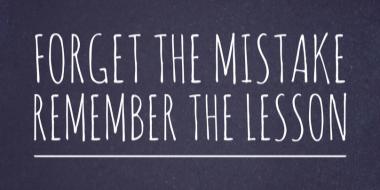Key Software Skills for Resumes: Recommendations and Tips
Computer skills are essential in the modern era. Nearly every role needs technology in some capacity, from programmers using coding skills to project managers organizing tasks on a PM tool dashboard. Recruiters are on the lookout for these vital abilities, and it pays to showcase them on your resume. In our guide, explore the top software skills for resumes and how to smoothly incorporate them into the perfect application.

Importance and benefits of software skills in the job market
Software skills are vital to the current working world, helping companies complete tasks efficiently, monitor and maintain systems, and bolster cybersecurity. They’re also crucial to making attractive, user-friendly websites to engage customers.
A massive amount of modern roles rely on computer skills. Positions like programmers, IT specialists, AI professionals, and analysts are in high demand as many organizations are experiencing an intense tech talent shortage.
Nearly every position uses software skills to some extent, even roles you may not expect. For example, using performance management systems is a crucial management skill, and customer service agents must know how to use CRM platforms.
Software abilities help companies perform tasks and complete responsibilities, such as delivering web development and marketing projects. However, computer skills help organizations in many other ways, including:
- Enhancing productivity through software use, such as automating processes
- Improving team collaboration and communication skills
- Boosting company adaptability and speed
- Hiring and training staff
- Getting the most out of team meetings
It’s almost guaranteed that your future employer is looking for software skills. It’s essential to list them on your resume, but you need to know which skills to provide and how to add them. Let’s get started.
Key software skills and where they are used
There are thousands of different software skills for resumes, but we’ve gathered the most relevant and in-demand skills in today’s job market. Explore this list of technical skills and which industries typically need each one.
Microsoft Office Suite
Microsoft Office Suite skills are incredibly versatile and used by many industries, including marketing, sales, customer service, and IT. Read each job description carefully to learn which skills and proficiency levels your role needs.
The top Microsoft Office Suite skills are:
- Microsoft Word
- Microsoft Excel
- Microsoft Outlook
- Microsoft Powerpoint
- Microsoft OneNote
Project management software
Project management (PM) software helps project managers, account managers, and editors organize and visualize tasks. It’s most commonly used in marketing, healthcare, IT, construction, and web development but is useful in any industry that regularly completes projects.
Common PM tools include:
- Trello
- Asana
- Monday.com
- ClickUp
- Notion
Version control systems
Version control systems (VCS) help software teams monitor changes to source code, enabling them to compare earlier versions and collaborate more seamlessly. The top industries that use VCS platforms include game development, cloud computing, media and entertainment, and finance.
The top version control platforms include:
- Git
- Apache Subversion
- Mercurial
- Beanstalk
- HelixCore
Machine learning algorithms and techniques
Machine learning is a form of artificial intelligence focusing on how to use algorithms and data to teach machines how to think like humans. New industries reap the benefits of machine learning every day, so it’s important to research each company you apply to and check.
Here are the best machine-learning skills to include on your resume:
- Natural language processing
- Deep learning
- Algorithms
- Analytics and probability
- Programming languages
Graphic design software
Graphic design involves creating, manipulating, and editing images, from informative graphs to stunning company logos. These skills are useful in nearly every industry, but many people look for graphic design agencies because they’re common and help professionals reliably find work.
The main graphic design tools to list on resumes include:
- Adobe Photoshop
- Adobe Illustrator
- Adobe InDesign
- Figma
- Affinity Designer
Note: We also highly recommend listing any and all graphic design certifications on resumes to reinforce your qualifications.
Database management systems
Database management systems (DBMS) help companies store, retrieve, and update organizational data. While many industries use DBMSs, they’re most common in business, finance, HR, and manufacturing.
Here are the most common DBMS skills for your application:
- MySQL
- Oracle
- Microsoft SQL Server
- PostgreSQL
- MongoDB
Programming languages
Programming languages are some of the most popular, in-demand software skills, as they help people create websites, apps, and computer programs – this makes a well-written programming skills resume a powerful tool. These abilities are useful in many industries, but they’re most commonly used in web development, finance, game development, and healthcare.
The top programming languages include:
- Java
- Python
- C++
- JavaScript
- PHP
- Go
- C#
Incorporating software skills in resume sections
Now that you have an idea of which ones apply to you, let’s review how to list programming skills on resumes (or any other software skills, for that matter).
First, we’ll cover the most obvious place to put software abilities: your Skills section. This section should be a balance of hard skills and soft skills, with five to 10 skills overall. Make this a concise list – just the titles of your skills are fine.
You can also incorporate software skills into other resume sections, including your resume summary. This is a great way to catch the hiring manager’s eye right away, so use something impactful, like course certificates or metrics. See realistic examples of attention-grabbing resume introductions in our collection of resume samples.
The Education and Work Experience sections are also excellent spots to showcase your software expertise. Mention any technology-based degrees you hold and weave your skills into the bullet lists in your work entries. Here’s a quick example of listing C++ projects for a resume:
C++ Developer
Quick Thoughts, Seattle, WA
August 2019 – October 2023
- Taught C/C++ to junior teammates, improving team performance by 10% and leading to junior team members’ growth and promotion.
This is one of our favorite ways to display software skills because it allows you to show soft skills at the same time. The above example shows the jobseeker isn’t just proficient in C++, but also has strong teamwork and leadership abilities.
Which of these formats to you like the best? Try using two to three of them to incorporate your skills throughout your resume, reinforcing your skills and qualifications. This is easiest with a flexible, professional resume template – check out our library of attractive resume layouts and grab one for yourself.
Expert tip:
Keep current with modern trends and technologies to ensure your software skills stay relevant. Look into online courses to earn new certificates and talk to your friends and colleagues about new developments. These skills move and adapt quickly, and it’s vital to stay fresh.
Questions about software skills
After reading your resume, hiring managers will definitely ask about your hard skills during the interview – if you properly interested them, they’ll be excited to learn about your professional history and projects.
It’s a good idea to be prepared for the interview and consider a few answers beforehand. It’s tricky to think up answers on the spot. Even if you have the perfect response, chances are you won’t think of it until later.
Here are a few common software interview questions to get you thinking:
- Can you tell me about a time you had to quickly learn a new technical skill?
- Which types of software have you used at work?
- Can you tell me about a problem encountered? How did you solve it?
- Which programming project are you most proud of?
- How do you prioritize security in your software work?
We recommend you provide real examples of your software skills in action. And don’t leave the impact up to the interviewers’ imagination – explain how your abilities contributed to better job performance and positive company outcomes.
“Positions like programmers, IT specialists, AI professionals, and analysts are in high demand as many organizations are experiencing an intense tech talent shortage.”
Showcase in-demand software skills on your resume
Displaying crucial technical skills helps programmers land their dream job, but it’s also crucial for thousands of other professionals, including call center agents, project managers, and editors. Describe your software abilities and impress hiring managers using our top tips:
- Identify your key skills and the main industries they’re used in
- Weave your software skills throughout your application, including in your summary, work experience, and education sections
- Use a professional resume template to display your skills attractively
- Prepare for your interview by considering common questions and potential answers that show your software skills
An impressive software skills resume is effortless when you use CVwizard’s resume maker. Our tool helps you make a professional job application in minutes.

Make an impression with your resume
Create and download a professional resume quickly and easily




